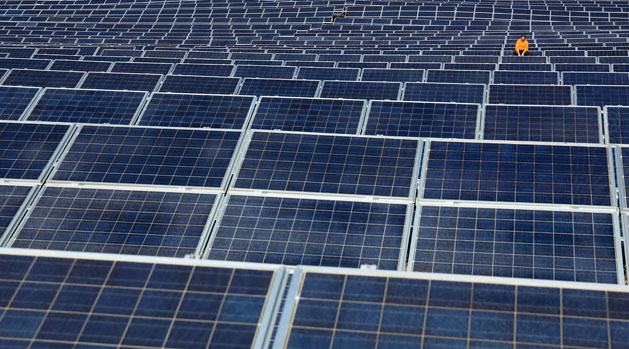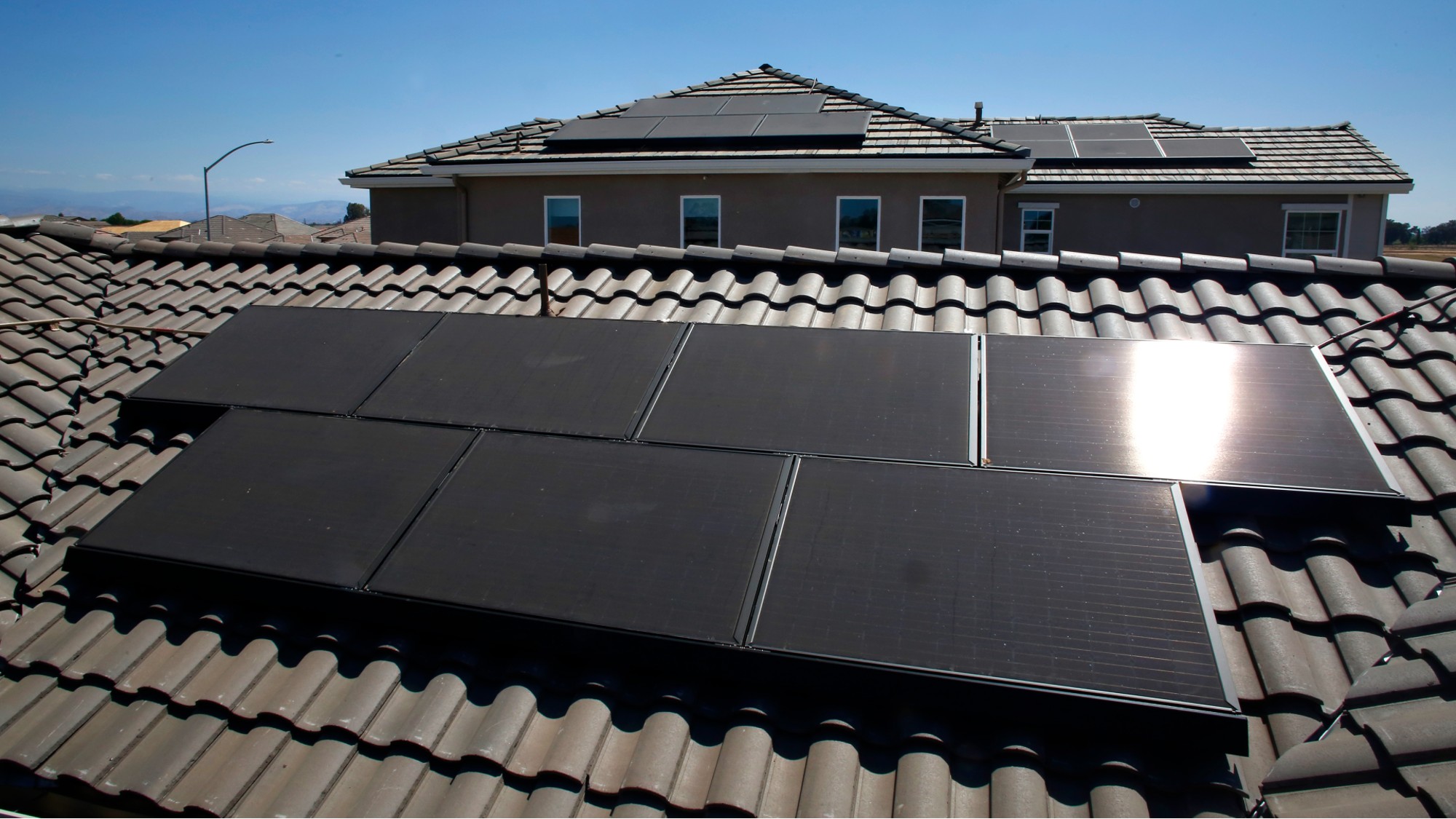Solar power will be 'as cheap as coal' amid new advances
New era for renewables predicted, as solar panel production, technology and efficiency improves

A free daily email with the biggest news stories of the day – and the best features from TheWeek.com
You are now subscribed
Your newsletter sign-up was successful
Technological advances in the way solar panel components are being produced have prompted predictions that solar power will soon be as cheap as coal.
The price of crystalline silicon modules has fallen from $4 per watt in 2007 to $0.50 per watt in 2014 following new, low-cost production processes.
1366 Technologies, a company based in Massachusetts, claims that its new method of silicon wafer production can reduce costs further.
The Week
Escape your echo chamber. Get the facts behind the news, plus analysis from multiple perspectives.

Sign up for The Week's Free Newsletters
From our morning news briefing to a weekly Good News Newsletter, get the best of The Week delivered directly to your inbox.
From our morning news briefing to a weekly Good News Newsletter, get the best of The Week delivered directly to your inbox.
The silicon wafers behind existing solar panels are cut from large blocks of polycrystalline silicon – a process that is "extremely inefficient, turning as much as half of the initial ingot into sawdust", says Phil McKenna at environmental website Ensia.
1366, which hopes to begin mass production next year, instead melts the silicon and recasts it into thin wafers, cutting the overall cost of a crystalline silicon module by 20 per cent.
Frank van Mierlo, CEO of 1366, says his "humble wafer will allow solar to be as cheap as coal and will drastically change the way we consume energy".
Martin Green, a leading photovoltaic researcher, predicts that the cost will drop to $0.25 per watt over the next decade if other semi-conducting materials can be stacked on top of existing solar cells to convert a wider spectrum of sunlight into electricity.
A free daily email with the biggest news stories of the day – and the best features from TheWeek.com
"If you can stack something on top of a silicon wafer it will be pretty much unbeatable," he says.
Meanwhile, thin films – an alternative to crystalline silicon – are predicted to experience a "renaissance". One company, First Solar, says it can manufacture thin-film solar modules for less than $0.40 per watt and anticipates further price reductions in the coming years.
"Thanks to technological advances and a ramp-up in production over the decade, grid parity—the point at which sources of renewable energy such as solar and wind cost the same as electricity derived from burning fossil fuels—is quickly approaching," says Ensia's McKenna.
"In some cases it has already been achieved, and additional innovations waiting in the wings hold huge promise for driving costs even lower, ushering in an entirely new era for renewables."
-
 How the FCC’s ‘equal time’ rule works
How the FCC’s ‘equal time’ rule worksIn the Spotlight The law is at the heart of the Colbert-CBS conflict
-
 What is the endgame in the DHS shutdown?
What is the endgame in the DHS shutdown?Today’s Big Question Democrats want to rein in ICE’s immigration crackdown
-
 ‘Poor time management isn’t just an inconvenience’
‘Poor time management isn’t just an inconvenience’Instant Opinion Opinion, comment and editorials of the day
-
 Zero-bills homes: how you could pay nothing for your energy
Zero-bills homes: how you could pay nothing for your energyThe Explainer The scheme, introduced by Octopus Energy, uses ‘bill-busting’ and ‘cutting-edge’ technology to remove energy bills altogether
-
 Megabatteries are powering up clean energy
Megabatteries are powering up clean energyUnder the radar They can store and release excess energy
-
 Renewables top coal as Trump seeks reversal
Renewables top coal as Trump seeks reversalSpeed Read For the first time, renewable energy sources generated more power than coal, said a new report
-
 Pakistan's solar panel boom
Pakistan's solar panel boomUnder The Radar A 'perfect storm' has created a solar 'revolution' in the south Asian country
-
 How would reaching net zero change our lives?
How would reaching net zero change our lives?Today's Big Question Climate target could bring many benefits but global heating would continue
-
 Homeowners are getting burned by solar panel scammers
Homeowners are getting burned by solar panel scammersIn Depth One-star reviews for solar companies have increased over 1,000% since 2018
-
 The pros and cons of solar energy
The pros and cons of solar energyPros and cons Solar power could become the primary source of electricity worldwide by 2050 – but there are still clouds in the forecast
-
 Is America running out of electrical power?
Is America running out of electrical power?Today's Big Question The nation's power grid appears to be reaching critical levels due to emerging technologies